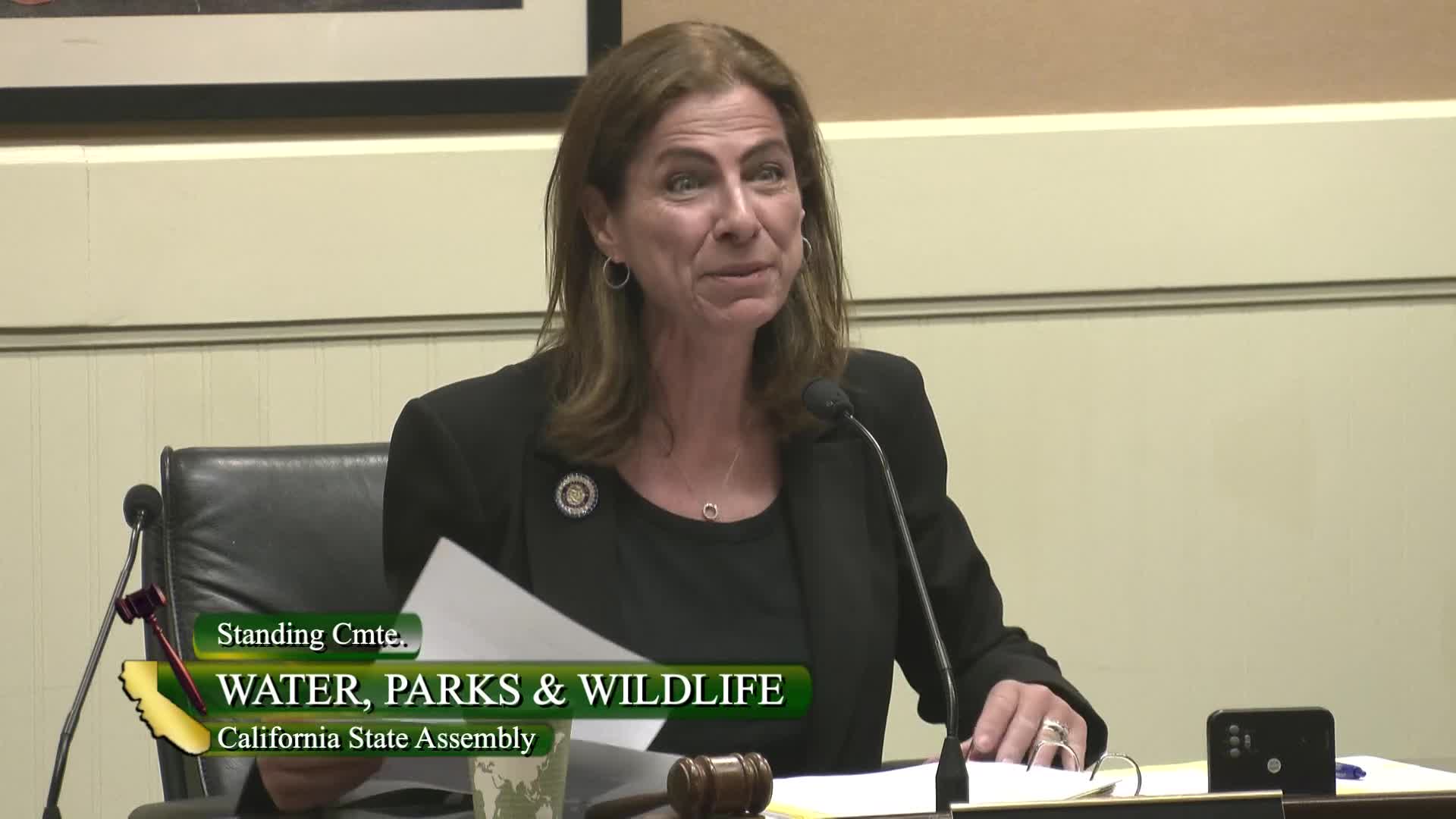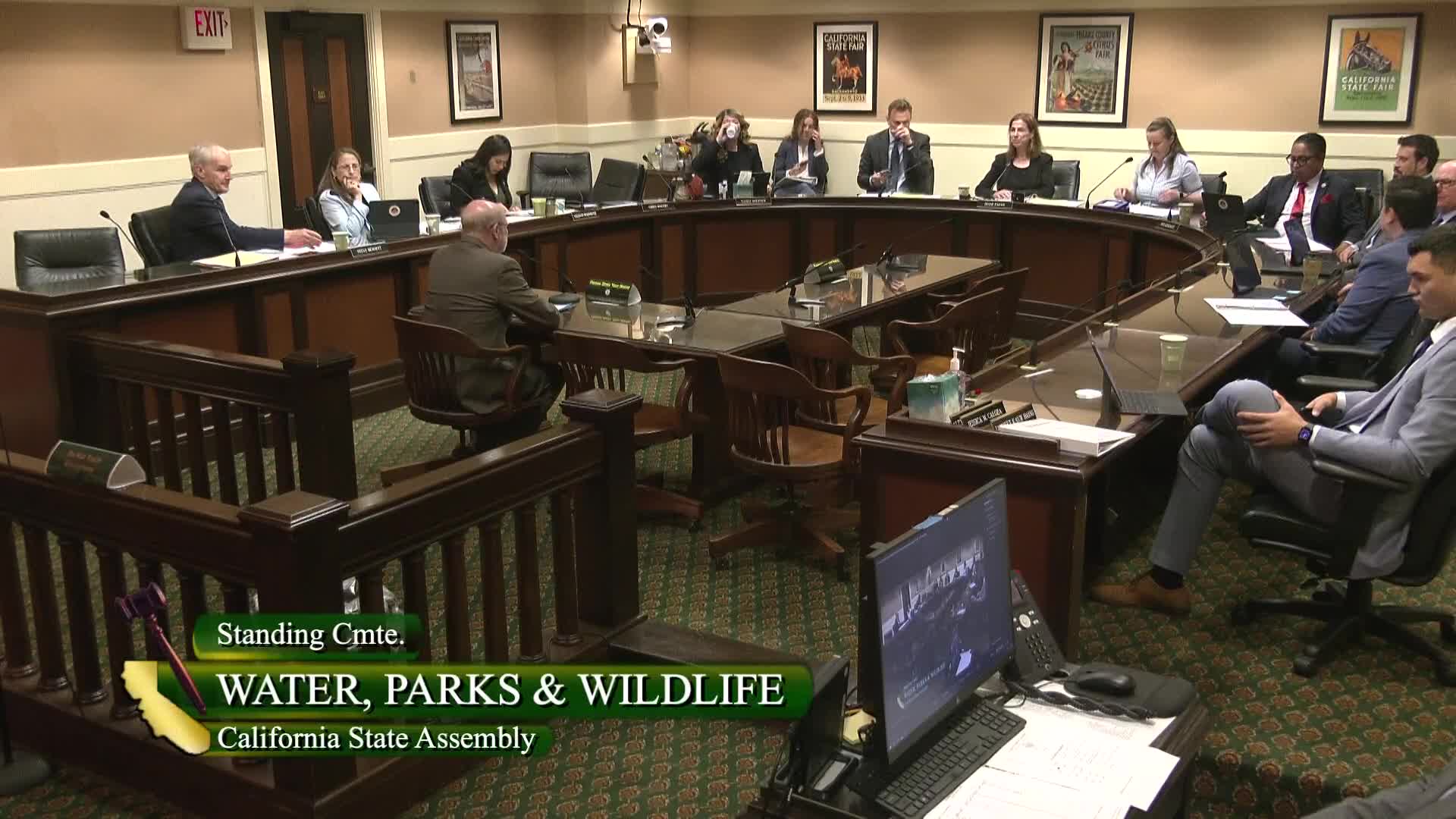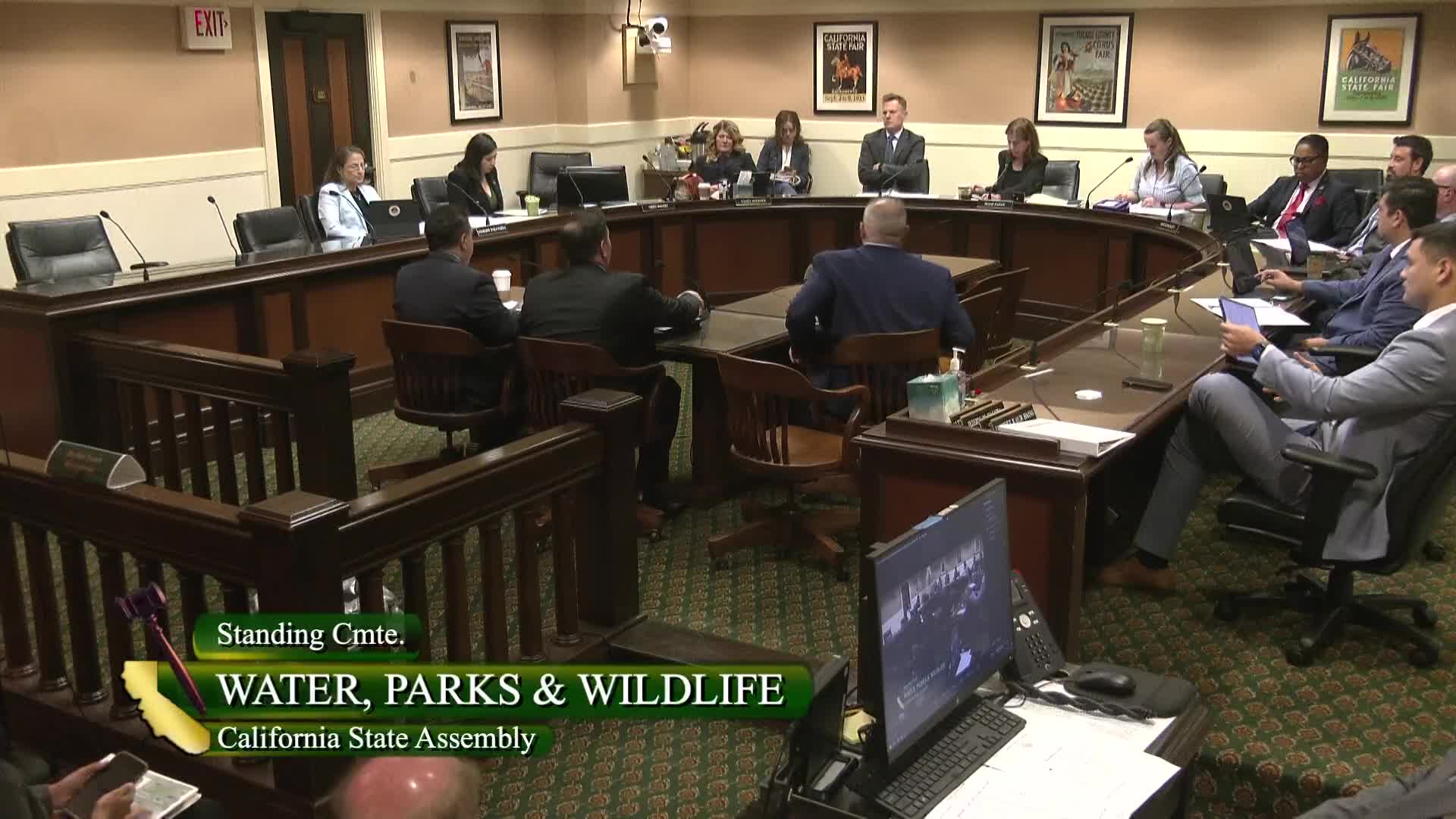Article not found
This article is no longer available. But don't worry—we've gathered other articles that discuss the same topic.

Assembly committee advances SB 72, setting 9 million-acre-foot water supply target to plan for climate impacts

Committee approves SB 697 to allow digital tools in stream adjudications; refers bill to Judiciary

